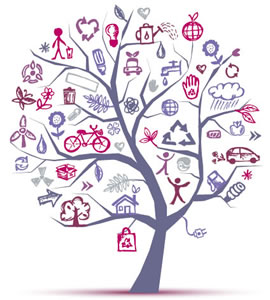Why we need new asset classes for Natural Capital
The Natural Capital Declaration could be one of the most significant initiatives at Rio + 20. The number of signatories is growing but mostly among lesser known names, will the major players sign?
UNEP FI’s Declaration is a commitment by financial institutions to create the conditions to maintain and enhance natural capital as a critical economic, ecological, and social asset. To date six institutions have signed up, but to achieve real change the declaration needs some major players to come on board and add momentum.
Only sign if you mean it
A possible reason making signatories think twice is the realisation that, having signed, they might be expected to behave differently.
Adequately protecting and enhancing natural capital as an integral part of investment activity is almost entirely outside the current practice of any financial institution and arguably the economic system as a whole. However, the translation of complex and often intangible factors into risk and price is something that financial institutions do every day.
In essence the Natural Capital Declaration requires that fundamental changes should take place in the intent and nature of investment activities in order to:
- Understand risk – recognise threats to Natural Capital as existential, systemic level risks, and;
- Recognise value – develop the means by which to undertake investment activities on the premise that natural systems provide the basis of all life and hence ‘real’ economic value.
Driving financial innovation
To avoid reputational risk, signatory institutions will need to provide evidence that the protection and enhancement of natural capital is a strategic business priority – not an afterthought applied to business as usual.
Three of the current signatories are asset managers, this is key to the commitment because we either need to reassess how current assets classes relate to the world or, more fundamentally, we need to consider ‘new’ asset classes and to develop the means by which to price and value such assets. Terrafiniti proposes two new asset classes:
- Restorative services – refer to human activities (and inactivity) which support and foster the protection and development of diverse, resilient and healthy ecosystems.
- Vital technologies – are those which either operate within the limits (carrying capacities) of healthy natural systems or which utilise and mimic the performance characteristics of natural production.
Sustainability, a natural outcome of economic activity?
The new asset classes are based upon articulating behaviours and activities which work alongside, utilise or borrow from naturally productive processes and capacity. They are intended to promote production and manufacture within the context of respecting natural capital integrity and ecosystem function. For example: sustainable agriculture, circular materials handling systems etc. We are also suggesting the need to adopt natural production technologies such as the manufacture of matter at room temperatures without harmful pollution (e.g. timber, plastics, biomass etc).
The asset classes also recognise that nature can look after itself if allowed to. Our economic and industrial models do not value that restorative capacity (which has a clear long term economic benefit) and tend to value intervention over the harvesting of natural productivity without damaging natural capital.
We don’t need miracles – just will and intent
Many of the techniques and technologies required to develop businesses within these asset classes are already recognised or developed. The challenge lies not in inventing miracle solutions, but deploying underused technologies at a scale large enough to make a difference globally.
The Natural Capital Declaration is a hugely significant initiative to connect sustainable value with financial value.
In conjunction with true innovation from the financial community it should be possible to produce positive outcomes as a matter of course rather than trying to achieve sustainability through taxation, pollution permits or other artificial, ex post facto instruments.


 Living in a material world
Living in a material world
Leave a Reply